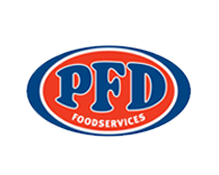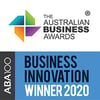Production Systems
Production systems: Production systems are systems that are used to produce goods or services. These systems often involve multiple steps or processes that must be completed in order to produce the final product. Production systems may also involve automated machines or robots that perform some or all of the steps in the production process.
The production of the commodities and services that people depend on every day is fueled by production systems, which are an essential component of modern life. They are complex structures with many components, but understanding them is essential for businesses to succeed in today’s competitive market. This article will provide an overview of production systems and how they work to get products from raw materials to finished goods ready for sale.
The design and operation of production systems has been refined over time as technology advances. Today's factories are highly automated spaces where machines interact with each other without human intervention, while still working towards the same goal: producing quality items efficiently and cost effectively. Production system designers must consider the various stages involved in making a product when designing these systems, including sourcing raw materials, manufacturing processes, packaging, shipping, storage and more.
This article will examine the different types of production systems available today along with their advantages and disadvantages. It will also look at how companies can use this information to improve their own operations by optimizing their current or future production systems. By exploring all aspects of production system design from layout to software applications, readers will gain valuable insights into how these important tools work and why they are so vital for success in business today.
What Is Meant By A Production System?
A production model used for product development and manufacturing is referred to as a "production system." There are various types of production systems, such as engineering production systems, marine environment cages, supply chain management, mass production, batch production and continuous development. Each system has its own advantages and disadvantages depending on the application it is being utilized for. For example, cage production systems in a marine environment provide year-round crop yields but require significant resources to maintain; whereas engineering production systems can create products with complex specifications quickly and efficiently.
The most common form of production system is known as a chain of production. This involves all stages from design through to delivery taking place in an integrated manner; allowing each stage to be closely monitored by engineers during the creation process. Additionally, continual development ensures that these processes remain up-to-date with modern trends and technologies. Supply chain management also works closely with this process, ensuring that components are sourced correctly in order to meet deadlines and customer expectations. Moreover, some forms of production such as mass or batch production allow multiple items to be manufactured simultaneously which results in improved efficiency when compared with individual item customization.
Overall, there are many different types of production systems available today that enable businesses to satisfy their product requirements while limiting costs associated with manufacture and distribution. Production models must always be carefully selected based upon specific needs as no single solution fits all scenarios due to varying levels of complexity encountered within any given industry sector or business operation.
What Are The 5 Types Of Production?
Production systems are a type of software development that is used to control the production process. They integrate multiple types of information, instructions and data into an automated system that runs in real time. There are five main categories of production systems: batch order, food production, manufacturing, job shop, and continuous flow.
Batch orders involve producing products in batches with each item having specific characteristics or features unique to it; they tend to be more common in smaller enterprises such as bakeries or confectioneries. Food production systems use automation technology and robotics to facilitate the processing of raw materials into finished goods; these can include anything from daily meals to ready-made snacks. Manufacturing production systems are designed for large scale repetitive operations like assembly lines; they often employ robots for precision handling and require complex programming rules which may take months to develop fully. Job shops typically specialize in custom orders and small-scale projects requiring special attention. Lastly, continuous flow systems are employed in plants where items need to be produced on a regular basis without interruption - examples could be found in industries such as petrol refining or chemical engineering.
These different types of production systems all have their own distinct advantages and disadvantages depending on the context of usage; however, regardless of the category chosen, employing a well-designed control system is essential for success. It requires careful planning by experienced personnel who understand both business needs and technical requirements while taking environmental factors into account simultaneously. When done correctly, this will ensure stability over long periods despite changing customer demands along with efficient operation management which leads to higher productivity levels overall.
What Are The Types Of Production Systems?
Production systems are the means by which goods and services are created. They can range from small job shops to large-scale manufacturing processes, all with different strategies for producing a product or service efficiently and cost effectively. The following outlines the various types of production systems:
Aquaculture Production Systems: This is where fish and other aquatic animals are raised in an artificial environment such as ponds, tanks, or man-made enclosures. Fish farmers use carefully managed feeding regimes along with water quality monitoring to create optimal conditions for their stock.
Job Shop Production: This type of production system focuses on providing custom products that meet specific customer demands. Job shop production involves skilled labor to produce specialized items using manual operations such as cutting, welding, turning, drilling etc. It also requires efficient inventory management due to its focus on one-off pieces rather than mass produced items.
Mass Customization & Time Method/Assembly Line Production System: Mass customization allows businesses to personalize products according to customer requirements while maintaining economies of scale when it comes to manufacturing costs. Time method production uses assembly lines of equipment and machines linked together in order to move parts through the process quickly and consistently. Kanban cards are used here too - these help track materials between work centers so that any delays can be identified early on before they cause disruption downstream.
Lean Manufacturing & Inventory Management: Lean manufacturing emphasizes eliminating waste within a production system by improving efficiency and reducing cycle times; this includes just-in-time delivery practices (JIT) and kanban cards discussed earlier. Additionally, effective inventory management ensures that raw materials, components, tools and supplies will be available when needed without overstocking or under stocking them at any given time – thus ensuring smooth flow throughout the whole process chain.
Finally, Continuous Production Systems involve producing items continuously without interruption until either a full batch has been completed or demand dictates otherwise – typically seen in industries like food processing where ingredients are mixed together into batches prior to packaging up each individual item for sale.
What Are 4 Production Systems?
Production systems are methods of food production that help to fulfill the needs of a growing population. There are four main types of production systems which include aquaculture, international trade, indoor farming and continuous production. Aquaculture is the practice of harvesting aquatic animals or plants from their natural habitats for human consumption; it has become increasingly important in recent years as environmental pollution has diminished arable land resources suitable for traditional agriculture. International trade involves exchanging agricultural products between countries, allowing them to benefit from each other's different climates and soil conditions. Indoor farming uses controlled environments such as greenhouses to grow crops, reducing the amount of resource consumption compared to conventional farming practices and providing access to crop varieties not available locally due to unfavorable climate conditions. Finally, continuous production is characterized by large-scale manufacturing and distribution orders managed by departments of economic development with an emphasis on future food production. These four production systems have revolutionized how we feed ourselves today—and will continue to do so into the future.
Conclusion
Production systems are the means by which products and services are created. They encompass five distinct types of production: mass, batch, project-based, continuous flow and lean manufacturing. Each type has its own benefits and drawbacks that must be taken into account when selecting a system for an organization's needs.
The four main production systems in use today include just-in-time (JIT), total quality management (TQM), quick response manufacturing (QRM) and agile manufacturing. JIT is used to reduce waste while increasing efficiency; TQM focuses on quality control; QRM provides rapid delivery through flexible supply chains; and agile allows for continual improvement within the system.
Considering how much technology has progressed over time, it is important to stay up to date with current production methods in order to remain competitive. Organizations should evaluate their processes periodically to ensure they have chosen the best method for their particular situation – one which will allow them to create high-quality products efficiently at a reasonable cost.
PREVIOUS NARROW AI GLOSSARY TERM
NEXT NARROW AI GLOSSARY TERM
Production Systems Definition
Exact match keyword: Production Systems N-Gram Classification: "Production Management System", "Manufacturing Production System", "Industrial Production System" Substring Matches: Production, Systems Long-tail variations: "Production Management Software", "Manufacturing Production Software", "Industrial Automation System" Category: Business, Technology Search Intent: Research, Solutions, Purchase Keyword Associations: Manufacturing, Automation, Industry 4.0, Robotics Semantic Relevance: Automation, Industrial Engineering, Robotics Parent Category: Business Subcategories: Automation, Industrial Engineering, Robotics Synonyms: Automation, Robotics Machinery Similar Searches: Manufacturing Solutions, Industrial Automation Solutions, Robotic Process Automation Geographic Relevance: Global Audience Demographics : Professional Engineers , Students , Researchers Brand Mentions : Siemens , ABB , Omron Industry-specific data : Unit cost , Productivity rate,, Quality management Commonly used modifiers : “Software” , “Systems” , “Integration” Topically relevant entities : Automation Solution , Manufacturing Solutions , Industrial Engineering Practices , Robotics Machines."Larry will be our digital expert that will enable our sales team and add that technological advantage that our competitors don't have."
Kerry Smith
CEO, PFD Foods
$1.6 billion in revenue 
"Lion is one of Australasia’s largest food and beverage companies, supplying various alcohol products to wholesalers and retailers, and running multiple and frequent trade promotions throughout the year. The creation of promotional plans is a complicated task that requires considerable expertise and effort, and is an area where improved decision-making has the potential to positively impact the sales growth of various Lion products and product categories. Given Complexica’s world-class prediction and optimisation capabilities, award-winning software applications, and significant customer base in the food and alcohol industry, we have selected Complexica as our vendor of choice for trade promotion optimisation."
Mark Powell
National Sales Director, Lion
"At Liquor Barons we have an entrepreneurial mindset and are proud of being proactive rather than reactive in our approach to delivering the best possible customer service, which includes our premier liquor loyalty program and consumer-driven marketing. Given Complexica’s expertise in the Liquor industry, and significant customer base on both the retail and supplier side, we chose Complexica's Promotional Campaign Manager for digitalizing our spreadsheet-based approach for promotion planning, range management, and supplier portal access, which in turn will lift the sophistication of our key marketing processes."
Richard Verney
Marketing Manager
Liquor Barons

"Dulux is a leading marketer and manufacturer of some of Australia’s most recognised paint brands. The Dulux Retail sales team manage a diverse portfolio of products and the execution of our sales and marketing activity within both large, medium and small format home improvement retail stores. We consistently challenge ourselves to innovate and grow and to create greater value for our customers and the end consumer. Given the rise and application of Artificial Intelligence in recent times, we have partnered with Complexica to help us identify the right insight at the right time to improve our focus, decision making, execution, and value creation."
Jay Bedford
National Retail Sales Manager
Dulux

"Following a successful proof-of-concept earlier this year, we have selected Complexica as our vendor of choice for standardizing and optimising our promotional planning activities. Complexica’s Promotional Campaign Manager will provide us with a cloud-based platform for automating and optimising promotional planning for more than 2,700 stores, leading to improved decision-making, promotional effectiveness, and financial outcomes for our retail stores."
Rod Pritchard
Interim CEO, Metcash - Australian Liquor Marketers
$3.4 billion in revenue 
"After evaluating a number of software applications and vendors available on the market, we have decided to partner with Complexica for sales force optimisation and automation. We have found Complexica’s applications to be best suited for our extensive SKU range and large set of customers, being capable of generating recommendations and insights without burdening our sales staff with endless data analysis and interpretation.
Aemel Nordin
Managing Director, Polyaire
"DuluxGroup is pleased to expand its relationship with Complexica, a valued strategic partner and supplier to our business. Complexica’s software will enable DuluxGroup to reduce the amount of time required to generate usable insights, increase our campaign automation capability, personalise our communications based on core metrics, and close the loop on sales results to optimise ongoing digital marketing activity."
James Jones
Group Head of CRM, DuluxGroup
"Instead of hiring hundreds of data scientists to churn through endless sets of data to provide PFD with customer-specific insights and personalised recommendations, Larry, the Digital Analyst® will serve up the answers we need, when we need them, on a fully automated basis without the time and manual processes typically associated with complex analytical tasks.”
Richard Cohen
CIO, PFD Foods
$1.6 billion in revenue 
"As a global innovator in the wine industry, Pernod Ricard Winemakers is always seeking ways to gain efficiencies and best practices across our operational sites. Given the rise of Artificial Intelligence and big data analytics in recent times, we have engaged Complexica to explore how we can achieve a best-in-class wine supply chain using their cloud-based software applications. The engagement is focused on Australia & New Zealand, with a view to expand globally."
Brett McKinnon
Global Operations Director, Pernod Ricard Winemakers
"70% - 80% of what we do is about promotional activity, promotional pricing -- essentially what we take to the marketplace. This is one of the most comprehensive, most complex, one of the most difficult aspect of our business to get right. With Complexica, we will be best in class - there will not be anybody in the market that can perform this task more effectively or more efficiently than we can."
Doug Misener
CEO, Liquor Marketing Group
1,400+ retail stores 
"The key thing that makes such a difference in working with Complexica is their focus on delivering the business benefits and outcomes of the project."
Doug Misener
CEO, Liquor Marketing Group
1,400+ retail stores 
"Australia needs smart technology and people, and it has been a great experience for me to observe Complexica co-founders Zbigniew and Matt Michalewicz assemble great teams of people using their mathematical, logic, programming, and business skills to create world-beating products. They are leaders in taking our bright graduates and forging them into the businesses of the future."
Lewis Owens
Chairman of the Board, SA Water 
"Having known the team behind Complexica for some years ago now, I am struck by their ability to make the complex simple - to use data and all its possibilities for useful purpose. They bring real intelligence to AI and have an commercial approach to its application."
Andrew McEvoy
Managing Director, Fairfax Media - Digital 
"I have worked with the team at Complexica for a number of years and have found them professional, innovative and have appreciated their partnership approach to delivering solutions to complex problems."
Kelvin McGrath
CIO, Asciano 
“Working with Complexica to deliver Project Automate has been a true partnership from the initial stages of analysis of LMG’s existing processes and data handling, through scoping and development phase and onto delivery and process change adoption. The Complexica team have delivered considerable value at each stage and will continue to be a valued partner to LMG."
Gavin Saunders
CFO, Liquor Marketing Group 
“Complexica’s Order Management System and Larry, the Digital Analyst will provide more than 300 Bunzl account managers with real-time analytics and insights, to empower decision making and enhanced support. This will create more time for our teams to enable them to see more customers each day and provide the Bunzl personalised experience.”
Kim Hetherington
CEO, Bunzl Australasia 
"The team behind Complexica develops software products that are at the cutting edge of science and technology, always focused on the opportunities to deliver a decisive competitive edge to business. It has always been a great experience collaborating with Matthew, Zbigniew and Co."
Mike Lomman
GM Demand Chain, Roy Hill Iron Ore 
"The innovations that the Complexica team are capable of continue to amaze me. They look at problems from the client side and use a unique approach to collaborating with and deeply understanding their customers challenges. This uniquely differentiates what they bring to market and how they deliver value to customers."
John Ansley
CIO, Toll Group 
"Rather than building out an internal analytics team to investigate and analyse countless data sets, we have partnered with Complexica to provide our sales reps with the answers they need, when they need them, on a fully automated basis. We are excited about the benefits that Larry, the Digital Analyst will deliver to our business.”
Peter Caughey
CEO, Coventry Group 
“Complexica’s Order Management System and Larry, the Digital Analyst will provide more than 300 Bunzl account managers with real-time analytics and insights, to empower decision making and enhanced support. This will create more time for our teams to enable them to see more customers each day and provide the Bunzl personalised experience.”
Kim Hetherington
CEO, Bunzl Australasia 
"After an evaluation process and successful proof-of-concept in 2016, we have chosen to partner with Complexica to upgrade the technological capability of our in-field sales force. The next-generation Customer Opportunity Profiler provided by Complexica will serve as a key tool for sales staff to optimise their daily activities, personalise conversations and interactions with customers, and analyse data to generate actionable insights."
Stephen Mooney
Group Sales Capability Manager, DuluxGroup
$1.7 billion in revenue
"After evaluating a number of software systems available in the marketplace, we have ultimately selected Complexica as our vendor of choice for sales force automation and CRM. Given the large SKU range we carry and very long tail of customers we serve, Complexica’s applications are best suited to deal with this inherent complexity without burdening our staff with endless data entry."
Nick Carr
CEO, Haircaire Australia
Australia's largest distributor of haircare products
“Asahi Beverages is Australia’s largest brewer, supplying a leading portfolio to wholesalers and retailers, including some of Australia’s most iconic brands. Last year Asahi Beverages acquired Carlton & United Breweries, which is its Australian alcohol business division. To harness the strength of our expanded portfolio, we partner with our customers to run multiple and frequent trade promotions throughout the year, delivering long-term growth for both our business and theirs. Given the inherent complexity in optimising promotional plans and our continued focus on revenue and growth management, we have selected Complexica as our vendor of choice after a successful Proof-of-Concept of its world-class optimisation capabilities.”
Kellie Barnes
Group Chief Information Officer
Asahi Beverages
"Dulux is a leading marketer and manufacturer of some of Australia’s most recognised paint brands. The Dulux Retail sales team manage a diverse portfolio of products and the execution of our sales and marketing activity within both large, medium and small format home improvement retail stores. We consistently challenge ourselves to innovate and grow and to create greater value for our customers and the end consumer. Given the rise and application of Artificial Intelligence in recent times, we have partnered with Complexica to help us identify the right insight at the right time to improve our focus, decision making, execution, and value creation."
Jay Bedford
National Retail Sales Manager, DuluxGroup
"At Liquor Barons we have an entrepreneurial mindset and are proud of being proactive rather than reactive in our approach to delivering the best possible customer service, which includes our premier liquor loyalty program and consumer-driven marketing. Given Complexica’s expertise in the Liquor industry, and significant customer base on both the retail and supplier side, we chose Complexica's Promotional Campaign Manager for digitalizing our spreadsheet-based approach for promotion planning, range management, and supplier portal access, which in turn will lift the sophistication of our key marketing processes."
Richard Verney
Marketing Manager, Liquor Barons


































